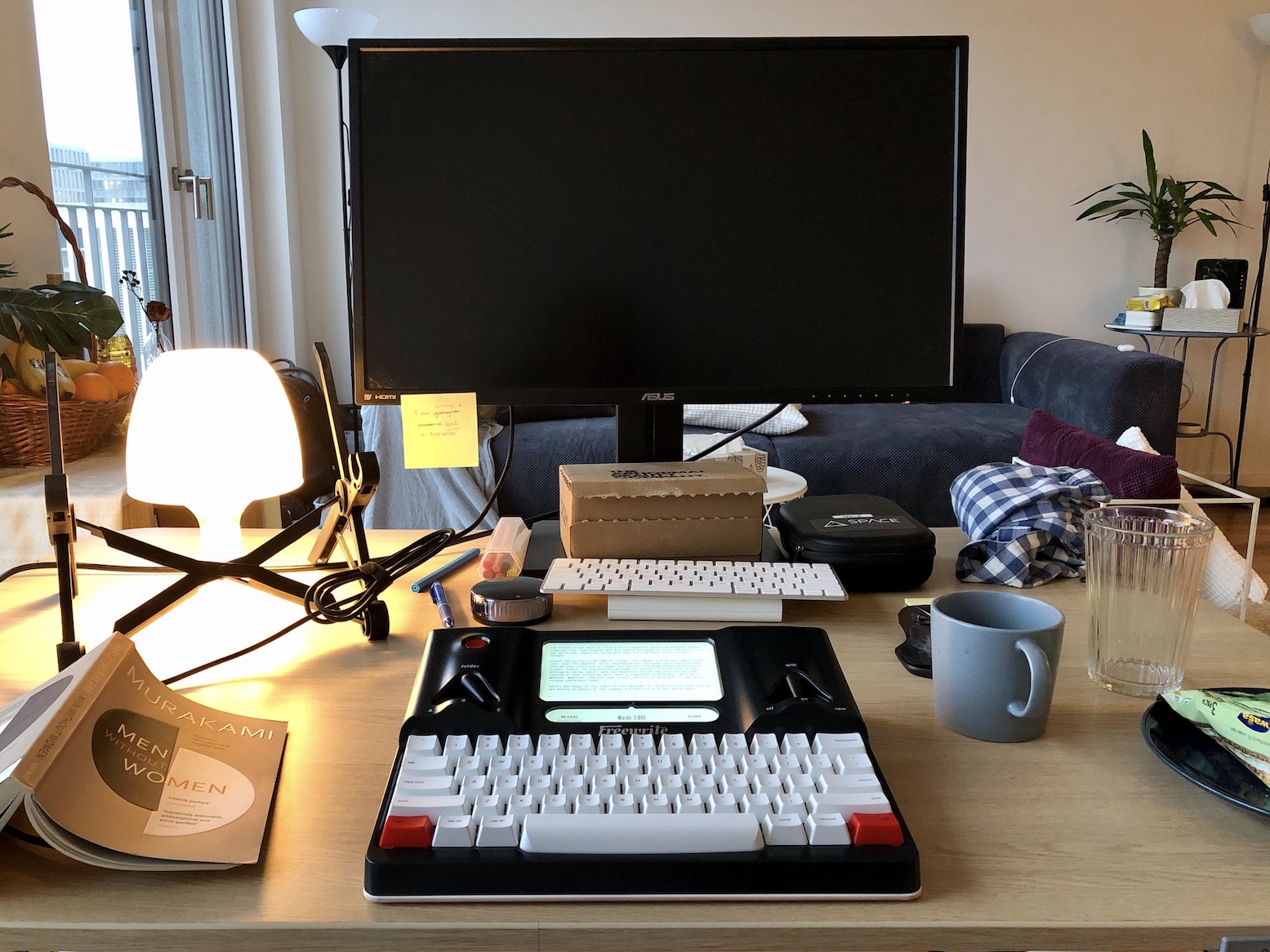Are we not all scientists?
We are all very scientific, each of us, even if we don’t necessarily think about ourselves as scientists.
Let’s ask ourselves: What is the scientific method? Well, the unsophisticated answer is that it is simply a method for arriving at a durable truth.
Don’t we seek durable truths all the time?
 My writing setup. That’s a Freewrite, a distraction-free modern typewriter, if you will.
My writing setup. That’s a Freewrite, a distraction-free modern typewriter, if you will.
For example, right now I’m trying to learn the best way to write a novel. To know the answer to that question, I first put it off and narrow it down further: What is the best way for me to write a book?
I came up with a few hypotheses, which I’m putting to the test now in the hopeful November of 2020 (Joe Biden just beat Donald Trump in the US presidential elections!):
- The best way for me to write a book is to try and struggle through the process of writing one.
- The time before dawn is the best time for me to write and when I’m most productive.
- An element of social pressure helps to keep me focused on my goal of writing a 50,000-word novel.
- Light, lyric-less music helps me narrow in on the story world.
- Having a novel as reference helps me with the technical aspect of novel writing.
“Uhh, Nick,” you might be thinking. “It’s not scientific when it applies only to you.” And you are technically right! But these are still truths, at least for me, are they not? They might even be durable since my personality and behaviour does not change very often. They’re truths, even if they apply only to me.
And this is really the point I’m getting at. A lot of what we read on the internet, especially on personal blogs like mine, is actually subjective and non-scientific. Like, if there was a law enforcing that we put a disclaimer on blog articles, they would probably bear the words, in all caps, YOUR MILEAGE MAY VARY.
Yet, knowing this, I myself recently sought articles and videos about hacks, in terms of techniques, approaches, and mindsets, for writing my first novel. Whenever I set myself a new goal or get started on a new project, I would invariably realise a gap in my knowledge, and I’d google about it, fishing for answers to a question that only I can know for sure as they apply to me.
Am I just dumb? Perhaps I am merely seeking comfort and not real action?
I believe we instinctively look for stories of what others have done because, even though our “mileage may vary” from theirs, having a list of things to systematically test by ourselves helps. So, we are instrinsically motivated to at least create this list by trawling the internet. Getting our hands on this list feels already like progress.
Even if your mileage may vary, it is worth applying what people are advising on their blogs (after they pass the does-not-sound-like-bullshit test, of course). And guess what? Applying advice is the same as putting advice to the test, and is part of the scientific method:
- Come up with a hypothesis
- Test the hypothesis with one or several experiments
- Reject hypothesis if completely false
- Amend hypothesis and test again if partially true
- Confirm hypothesis as durable truth if completely true
So you see, we’re all scientists. We only cease to be one when we stop putting our list of hypotheses to the test.
My hypothesis is that I can write the draft of a novel in a month and I’m putting it to the test by waking up early every morning to write before my wife is awake.
Who knows, maybe one day I’ll be able to contribute to the list of things to try for aspiring authors! For now, I’m focused on testing those of others and learning the durable truths about me and words.
I’m being a real grown-up scientist guy.
